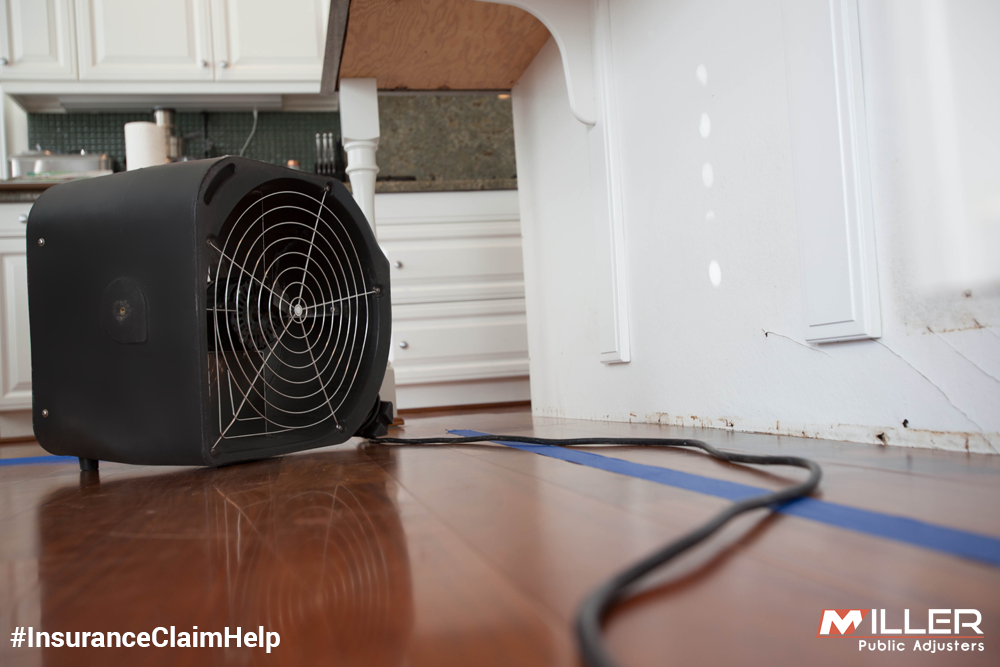
Major rain events — like the ones that have been plaguing Wisconsin this summer — get insurance companies busy denying homeowners insurance claims based on water-related policy exclusions.
There are many types of homeowners insurance policies. Most all-perils policies exclude (among other things) water damage caused by:
- Flood, defined as, “A general and temporary condition of partial or complete inundation of two or more acres of normally dry land or of two or more properties from: a) Overflow of inland or tidal waters; b) Unusual and rapid accumulation of runoff of surface waters from any source; or c) Mudflow. Coverage for flood is available only through a flood insurance policy.
- Surface water movement (includes water traveling on the ground)
- Overflow of a body of water
- Water below the surface of the ground
- Earth movement
- Sewer or drain backup (may be added with an endorsement)
- Sump pump discharge (may be added with an endorsement)
- Weather conditions that contribute to any of the above
Given these exclusions, damage from water seeping through a basement wall, window well, sump pump, basement floor, or other entry point at the foundation and below is not a covered loss. Conversely, unless specifically excluded, damage from wind-driven rain that enters through the roof, siding, or other opening should be covered.
It is important to note that the rules require coverage exclusions to match the claim circumstance specifically, or coverage does apply. Additionally, any policy language found to be ambiguous must be interpreted in favor of coverage.
How to know if your water damage insurance claim should be covered
As with all insurance coverage questions, proof of coverage must be found in the policy language. An understanding of the policy provisions, exclusions, endorsements and limits is necessary.
Generally speaking, a homeowners policy covers sudden and accidental water damage caused by water sources inside the home, like a broken pipe. With the exception of flood insurance, most homeowners insurance policies exclude losses caused by water that enters your home from the foundation or ground. Determining if coverage applies begins by determining how and when the water got there in the first place.
Rainwater rapidly entering and damaging property
If rain fell from the sky and entered a building, attorney Edward Beckmann from Hellmuth and Johnson, argues there is legal precedent in Wisconsin to enforce coverage for the loss, writing, “Damage due to rainwater that did not travel along the ground’s surface was specifically held to be covered under multiple [homeowners] policies.”
Backup, Overflow and Sump Endorsements
Sewer backup, drain overflow, and sump pump failure are common issues following a major rain event. Homeowners who added endorsements for these risks will be compensated for covered losses, though their policy limits may not be high enough to pay for all the damage.
What to do if your homeowners insurance claim is denied
Major rain events are among the most costly disasters for property owners. If you suffered water damage, and your insurance company denied your claim, you have limited time to request a review. To do so, follow these steps:
- Read your insurance carrier’s official explanation for why your claim was denied. This will arrive by mail.
- Compare their explanation to the language in your homeowners policy.
- If you disagree with your insurance company’s findings, contact your claims adjuster’s supervisor and explain your position. Be sure you can point to the words in your policy that promise coverage.
- If your claim is denied because the peril is excluded from your coverage, compare the details of your loss to the exclusion. If the circumstance of your loss does not fit the exclusion, you may want to consult with a public insurance adjuster. He or she can review your policy and confirm whether or not coverage should apply.
Disaster relief may be an option
On Aug. 29, 2018, Gov. Scott Walker increased the declared State of Emergency from six counties to statewide. His proclamation will bring much-needed federal disaster relief to communities and property owners suffering from water damage throughout Wisconsin.
A list of statewide storm-related resources is available here. To find out if you qualify for aid, or to apply for relief through the Federal Emergency Management Agency (FEMA), click here.
.png?width=190&height=55&name=MPA%20Logo%20Vector%20-%20Original%20(3).png)

.webp?width=331&height=382&name=ResourcesCTA-Fin-001%20(1).webp)



